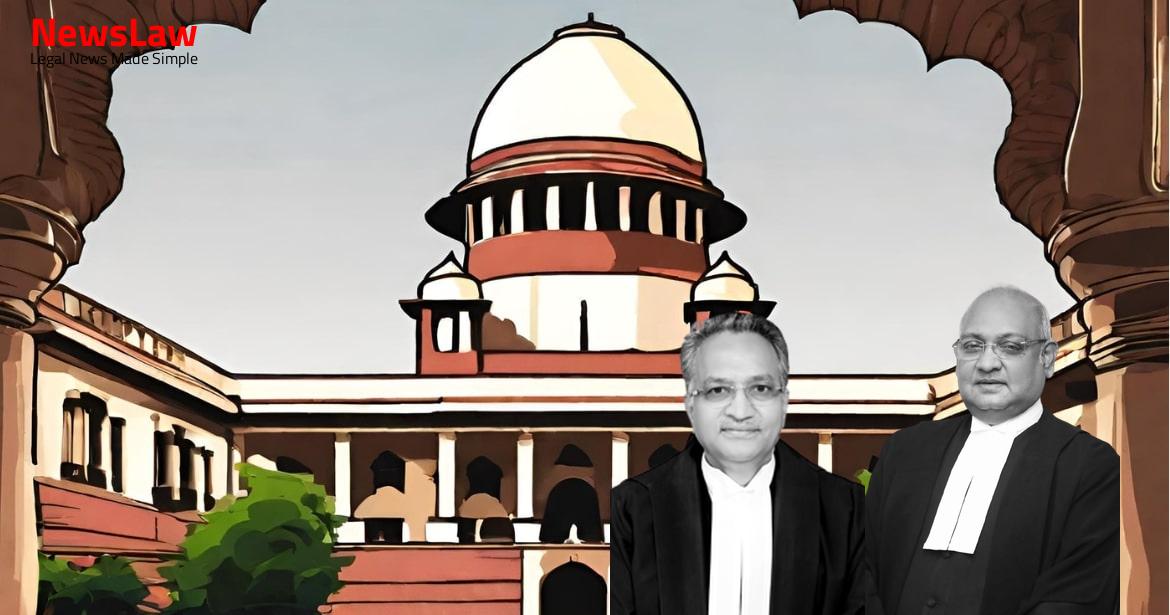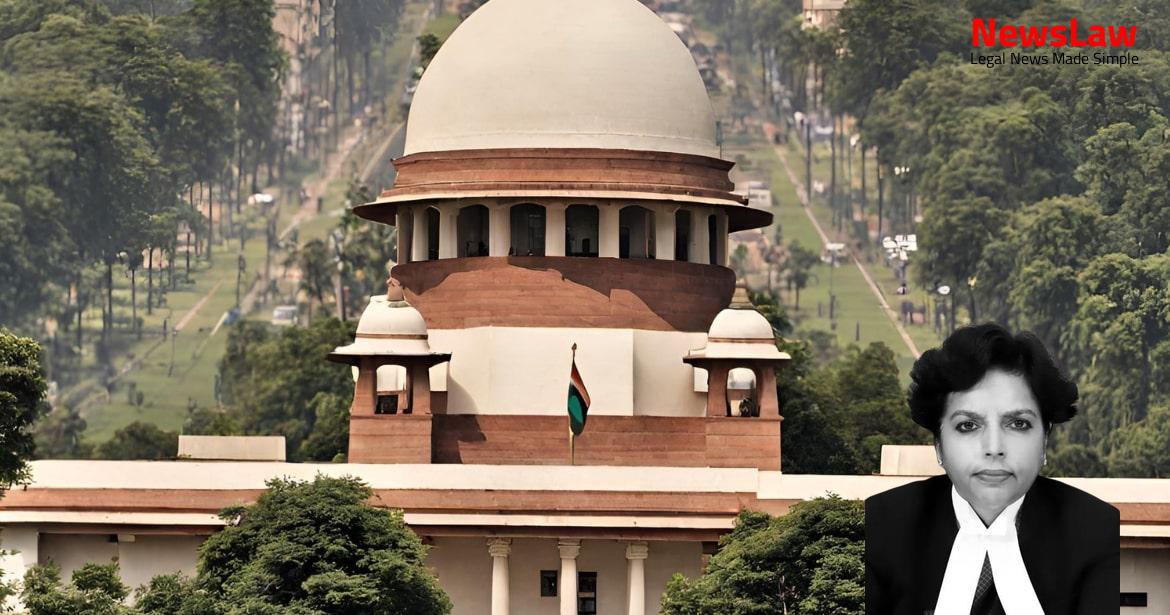The legal case discussed delves into the intricate balance of power between the judiciary and the legislature, focusing on tribunal appointments. The analysis revolves around ensuring the independence of the judiciary and upholding constitutional principles in the face of legislative actions. Stay tuned to explore the nuanced legal arguments put forth by the court regarding the separation of powers and safeguarding judicial autonomy in tribunal setups.
Arguments
- The Madras Bar Association filed a Writ Petition challenging the constitutionality of Sections 12 and 13 of the Tribunal Reforms (Rationalisation and Conditions of Service) Ordinance, 2021.
- The Petitioner argued that the said sections violate Articles 14, 21, and 50 of the Constitution, as well as the principles of separation of powers and independence of the judiciary laid down by previous court judgments.
- The Petitioner sought a direction for the establishment of a separate wing to cater to the needs of tribunals in India.
- The historical background of tribunalization in India was briefly discussed to provide context to the dispute.
- The argument was made that a judgment of a court can be overridden by the legislature.
- Issues raised included the minimum age limit of 50 years for appointment being contrary to previous court judgments.
- Amendment results in Members of tribunals in Delhi receiving Rs.60,000 as HRA.
- This is a significant increase from previous rates.
- Impact of amendment on the remuneration of tribunal members discussed.
- The increase in HRA seen as a positive development.
Also Read: Legal Analysis on Seniority Fixation in Contempt Petitions
Analysis
- The doctrine of separation of powers informs the Indian constitutional structure and is an essential constituent of the rule of law.
- Impartiality, independence, fairness, and reasonableness are the hallmarks of the judiciary.
- The American Constitution provides for a rigid separation of governmental powers into three basic divisions: executive, legislative, and judiciary.
- Independence of the judiciary is fundamental to the rule of law and is one of the basic tenets of the Indian Constitution.
- The judiciary must act as a bastion of the rights and freedom of the people and is given constitutional guarantees to safeguard its independence.
- Functional independence includes the method of selection and qualifications prescribed for judiciary members.
- Protection from interference and independence from executive pressure are essential aspects of judicial independence.
- The Constitutional mandate emphasizes separating the judiciary from the executive in the public services of the State.
- Section 184 of the Finance Act, 2017 empowered the Central Government to make rules regarding the qualifications, appointment, term of office, salaries, and allowances of Chairperson, Vice-Chairperson, President, Vice-President, Presiding Officer, and other Members of the Tribunal.
- The proviso to Section 184(11) set a maximum tenure of five years for Chairpersons, Vice-Chairpersons, and Members of the Tribunal from their date of entry into office.
- The validity of Section 184 of the Finance Act, 2017 was upheld, but the retrospective effect given to sub-section (11) was challenged.
- Certain provisos in Section 184(1) were found to be an affront to a previous judgment (MBA-III) and were declared unconstitutional.
- A notification amending the rules on House Rent Allowance (HRA) to comply with the court’s directions in MBA-III was issued.
- The attempt to nullify a court decision through legislative means was condemned, and certain appointments made in line with court directions were upheld.
- The need for decent accommodation for members of tribunals, revised HRA amounts, and the implications of retrospective application of laws were discussed.
- The separation of powers between the legislative, executive, and judicial branches was emphasized, and the importance of judicial independence in appointments to tribunals was highlighted.
- Provisions regarding appointment processes, SCSC recommendations, and the term of office for tribunal members were analyzed and their constitutional validity evaluated.
- Section 184(11) is unconstitutional as it fixes the tenure of the Chairperson and Members at four years.
- The Ordinance may be struck down for violating the independence of the judiciary, a basic feature of the Constitution.
- Reversing judgments contrary to the Government’s views undermines the judiciary and the Constitution’s supremacy.
- Provisions fixing allowances for Members based on Central Government officers’ pay levels are unsustainable.
- Section 184(7) may be invalid as it annuls the Court’s direction to make appointments within three months.
- Advocates with 10 years of experience should be eligible for appointment as judicial members in the Tribunals.
- Rules to be amended to state that Vice-Chairpersons and other members hold office until they are 67 years old.
- Efforts should be made to provide suitable housing or pay house rent allowance to Tribunal officials.
- Search-cum-Selection Committees should include specific members for appointments to Tribunals.
- Committee should determine its procedure for making recommendations.
- Appointments to Tribunals should be made within three months of the Search-cum-Selection Committee’s recommendations.
- In the case of Dr. Ashwani Kumar v. Union of India & Anr., the court held that it cannot direct the legislature to make a law.
- In the Virender Singh Hooda case, it was noted that while vested rights can be taken away by retrospective legislation, it would be impermissible if it violates constitutional provisions like Articles 14, 16, or any other relevant provision.
- The legislature has the authority to enact laws, and the executive has the expertise to determine policy matters.
- Tribunalisation was introduced to expedite the process of delivering justice.
- However, tribunals are struggling to keep up with the increasing number of cases they have to handle.
Also Read: Judicial Analysis on Selection Process
Decision
- The direction is effective from 01.01.2021, urging all concerned to fill vacancies in tribunals without delay.
- The 2020 Rules shall have prospective effect from 12.02.2020 and will be applicable accordingly, as per Rule 1(2) of the 2020 Rules.
- The Tribunal Reforms (Rationalisation and Conditions of Service) Bill, 2021 was introduced in Lok Sabha on 13.02.2021 but was not considered.
- Appointments made under the 2020 Rules until the date of the judgment are not invalid.
- Access to justice and confidence of litigant public in tribunals need to be restored within three months.
- The 2020 Rules shall be applicable with modifications to those appointed after 12.02.2020.
- Search-cum-Selection Committees’ recommendations made under the 2020 Rules are saved.
- Chairpersons, Vice-Chairpersons, and members of the Tribunal shall hold office for five years and are eligible for reappointment.
- Terms and conditions relating to salary, benefits, allowances, etc. shall be as directed in the judgment.
- Chairpersons, Vice-Chairpersons, and members appointed prior to 12.02.2020 shall be governed by their respective statutes and rules.
- Retirements of Chairpersons, Vice-Chairpersons, and members of Tribunals shall be entitled to reappointment based on their service rendered.
- The term of the Chairpersons, Vice-Chairpersons, and members of the Tribunals was extended till 31.12.2020 during the judgment reserve on 09.10.2020.
Also Read: Legal Analysis of Decision-making Authority in Municipality Dispute
Case Title: MADRAS BAR ASSOCIATION Vs. UNION OF INDIA (2021 INSC 332)
Case Number: W.P.(C) No.-000502 / 2021



